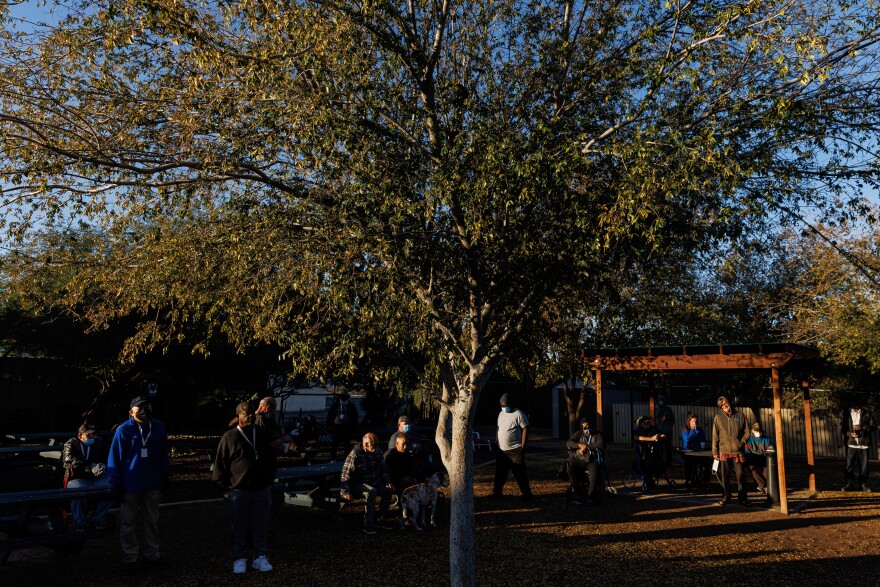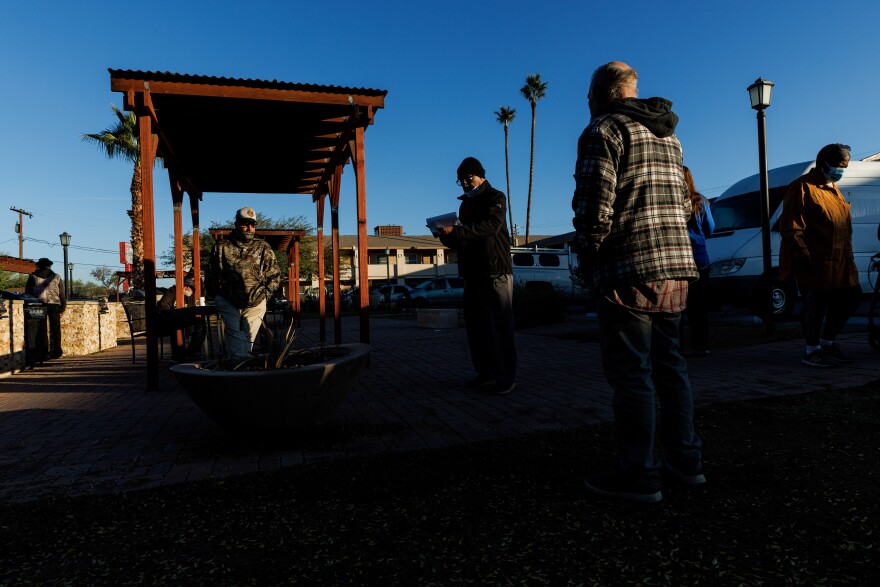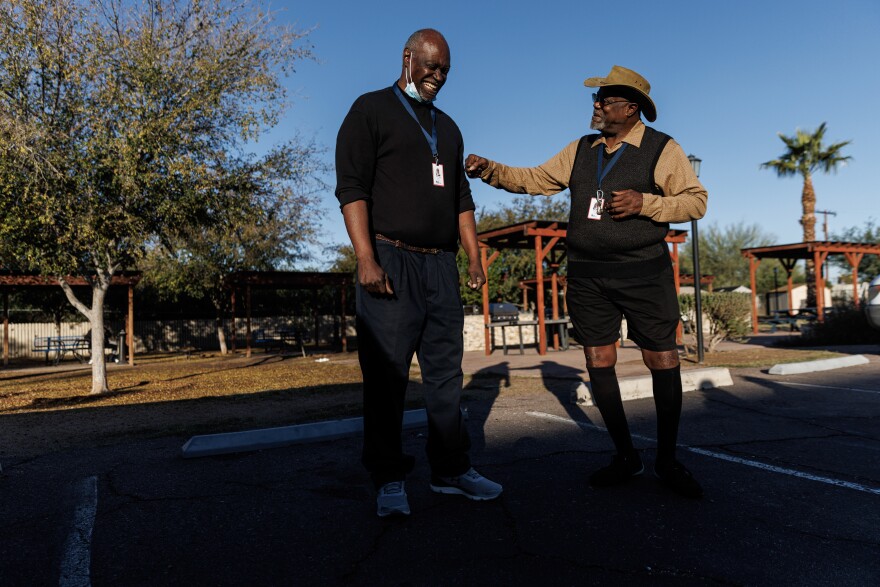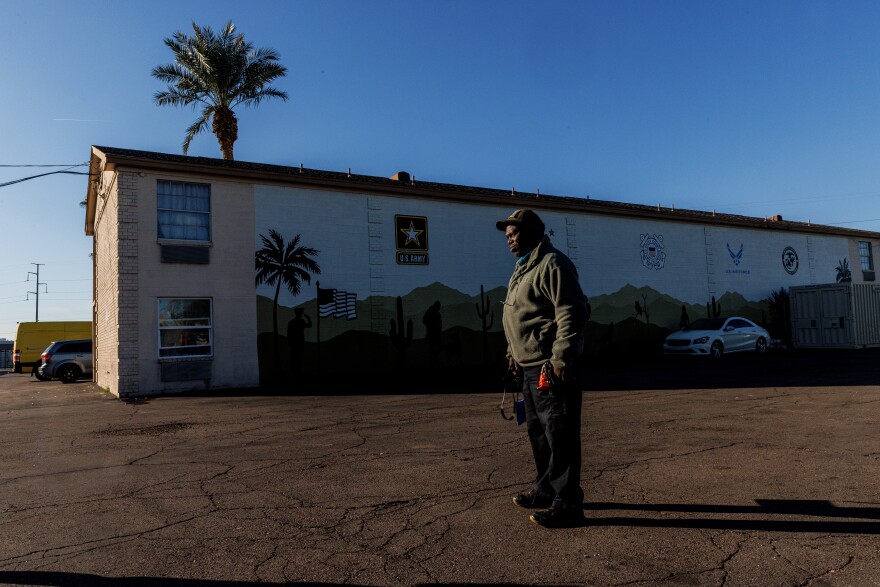PHOENIX — U.S. Army veteran Mike Biggs was visiting his sister in Phoenix 10 years ago when a pair of fellow veterans saw him on the street and told him something he didn't know about himself.
"They said, 'Well, you're homeless.' And I'm like, 'No, I'm not.' So they had to explain to me what the definition of homelessness is," he said.
Biggs had been too busy getting by to realize his name hadn't been on a lease for five or six years after getting out of the military.
"I said, 'Well, yeah, and I've been homeless for a very long time then.' So they said, 'Well, you need to come with us.' Didn't know these guys from a can of paint," he said.

Those two veterans brought him to a transitional housing program run by U.S. Vets in Phoenix, and eventually offered him a job. He said he'd stay for 90 days. That was 2012, and Biggs is still working at U.S. Vets as a veterans service coordinator.
After several years of limited progress, an 11 percent drop since 2020 has encouraged advocates and VA officials. It's the biggest reduction in five years. There were 33,136 homeless vets in 2022 — down from 37,252 in 2020 according to the annual point in time count conducted by the VA, HUD and the U.S. Interagency Council on Homelessness. The same count found 582,462 homeless people in America - the Biden Administration says it's aiming to reduce that number 25 percent by 2025.
Key to the effort is an approach called housing first, as Biggs explains.
"Housing first is a model where the ultimate goal and the main priority is to get a veteran housed. With that comes a thing called wraparound services," says Biggs.
The idea is to get veterans a place to live, and then take care of other problems like health care, substance abuse, counseling and job training. It's a key part of a plan that saw a 55 percent reduction in veterans homelessness since 2010.


That progress mostly stalled during the Trump Administration. Trump appointed a controversial critic of "housing-first" to head the federal Inter-Agency Council on Homelessness. Trump-backed candidates like Kari Lake in Arizona, who made it a campaign issue last year. As part of her failed bid to become governor, Lake argued that housing should be a reward for treatment, and called chronic homelessness a lifestyle choice.
"In some communities this has been more controversial, I think, than maybe it needs to be," says Kathryn Monet, CEO of the National Coalition for Homeless Veterans.
She hopes the Biden Administration's push to reduce all homelessness 25 percent by the end of his term will be spared from partisan politics.
"I do think that the renewed energy and focus that this administration has had on veteran homelessness has really allowed for communities and providers to focus on doing what works as opposed to really working to address some of the divisiveness that we've seen in recent years," said Monet.
Monet says once people get in housing it's less expensive to take on their other issues, so resources go further. She hopes that methodology, along with robust funding from HUD and VA, can sustain the downward trend on veterans homeless.

The biggest challenge is just finding the homes — with a nationwide shortage of low-income housing. Mike Biggs says the housing market in Phoenix is so tight that even people with jobs end up living on the streets.
"There's not enough affordable housing. When I first got here 10 years ago, you could find an apartment for $500 a month, $99 move-in special. Those places are gone. A lot of the locations now, it takes two incomes," he said, "It feels like it's an uphill battle."
Copyright 2023 NPR. To see more, visit https://www.npr.org.




